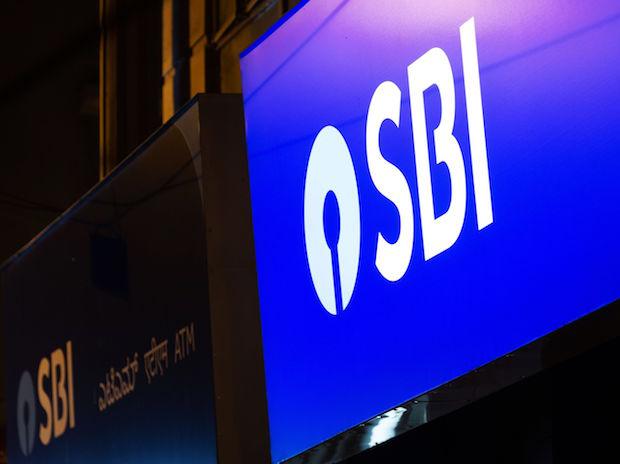State Bank Of India Q4 Profit Up 80% At Rs 6,451 Crore, Beats Estimates

State Bank of India’s (SBI’s) net profit rose 80.1 per cent year-on-year (YoY) to Rs 6,451 crore in the fourth quarter ended March 2021, beating analysts' estimates on high net interest income (NII) and lower provisions. It had posted a net profit of Rs 3,581 crore in Q4FY20. Sequentially, net profit was up by 24.14 per cent against Rs 5,196 crore in Q3FY21.
Standalone (banking operations) net profit for FY21 rose 40.88 per cent to Rs 20,410 crore as against Rs 14,488 crore in FY20, while consolidated net profit of Rs 22,405 crore for the year was up 13.34 per cent YoY. These are the highest ever annual profits posted by the country’s largest lender.
The board of directors declared a dividend of Rs 4 per share (400 per cent) for the year ended March 2021.
Reflecting market sentiment, its stock closed 4.3 per cent higher at Rs 401.1 per share on the BSE. It was up over 5 per cent at Rs 404 on the NSE.
Bloomberg estimates had pegged loan loss provisions at Rs 10,863 crore and net profit of Rs 5,779 crore for the fourth quarter March 2021.
Given the second wave, the bank will give guidance on parameters like credit cost and recovery after the first quarter (Q1FY22). Its NII was up by 19 per cent in the reporting quarter to Rs 27,067 crore from Rs 22,767 crore in Q4FY21. Sequentially, however, NII declined by 6.08 per cent from Rs 28,820 crore in Q3FY21.

Net interest margin (domestic) improved by 17 basis points to 3.11 per cent in Q4FY21 from 2.94 per cent in the same quarter last year (FY20).
However, sequentially the margin was down by 23 basis points from 3.34 per cent in Q3FY21.
Its loan loss provisions, the amount set aside for bad loans, declined by 16.64 per cent to Rs 9,914 crore in Q4FY21 from Rs 11,894 crore in Q4FY20. Sequentially, provisions grew by 332.9 per cent from Rs 2,290 crore.
Chairman Dinesh Khara said the provisions (YoY) were down since asset quality had improved.
The provision coverage ratio improved to 87.75 per cent in March 2021 from 83.62 per cent a year ago. The bank is keeping a close watch on stressed loans and does not see concern on asset quality as of now.
SBI’s gross non-performing assets (NPAs) declined to 4.98 per cent in March 2021 from 6.15 per cent in March 2020. Sequentially, they were down from the proforma level of 5.44 per cent in Q3FY21. Net NPAs stood at 1.50 per cent, down from 2.23 per cent in March 2020 and the proforma level of 1.81 per cent in December 2020 (Q3FY21).
Its advances rose by 4.81 per cent to Rs 25.39 trillion by the end of March 2021 from Rs 24.22 trillion in March 2020. The retail loans books grew by 16.47 per cent. The domestic corporate loan book shrank 3.02 per cent.
About credit growth in FY22, Khara said the economy was estimated to grow 9 per cent and credit could expand by 10 per cent, depending on the trajectory of the second pandemic wave.
Its deposits grew by 13.56 per cent to Rs 36.81 trillion in FY21.
The capital adequacy ratio (CAR) improved by 68 bps to 13.74 per cent at the end of March 2021 from 13.06 per cent in March 2020.
The capital position is comfortable and internal accruals will take care of business growth in FY22. The bank will decide on raising capital through AT1 and tier II bonds after the first quarter, he added.
Business Standard has always strived hard to provide up-to-date information and commentary on developments that are of interest to you and have wider political and economic implications for the country and the world. Your encouragement and constant feedback on how to improve our offering have only made our resolve and commitment to these ideals stronger. Even during these difficult times arising out of Covid-19, we continue to remain committed to keeping you informed and updated with credible news, authoritative views and incisive commentary on topical issues of relevance.
We, however, have a request.
As we battle the economic impact of the pandemic, we need your support even more, so that we can continue to offer you more quality content. Our subscription model has seen an encouraging response from many of you, who have subscribed to our online content. More subscription to our online content can only help us achieve the goals of offering you even better and more relevant content. We believe in free, fair and credible journalism. Your support through more subscriptions can help us practise the journalism to which we are committed.
Support quality journalism and subscribe to Business Standard.
Digital Editor
Stablecoin The Future Of Currency?
The payments system is undergoing a quiet but consequential shift. What was once the exclusive preserve of central banks... Read more
BoE Loosens Capital Rules
The Bank of England has taken a significant step towards easing post-crisis regulation by lowering its estimate of the c... Read more
Monzo Looks For US Banking License
Monzo is preparing a renewed push to secure a US banking licence, four years after abandoning its first attempt when tal... Read more
Crypto Firms Push Into US Banking
America’s cryptocurrency companies are scrambling to secure a foothold in the country’s traditional banking system, ... Read more
Parallel Banking: Stablecoins Are Now Global
Parallel Banking: How Stablecoins Are Building a New Global Payments SystemStablecoins—digital currencies pegged to tr... Read more
JPMorgan Deploys AI Chatbot To Revolutionize Research And Productivity
JPMorgan has deployed an AI-based research analyst chatbot to enhance productivity among its workforce, with approximate... Read more

